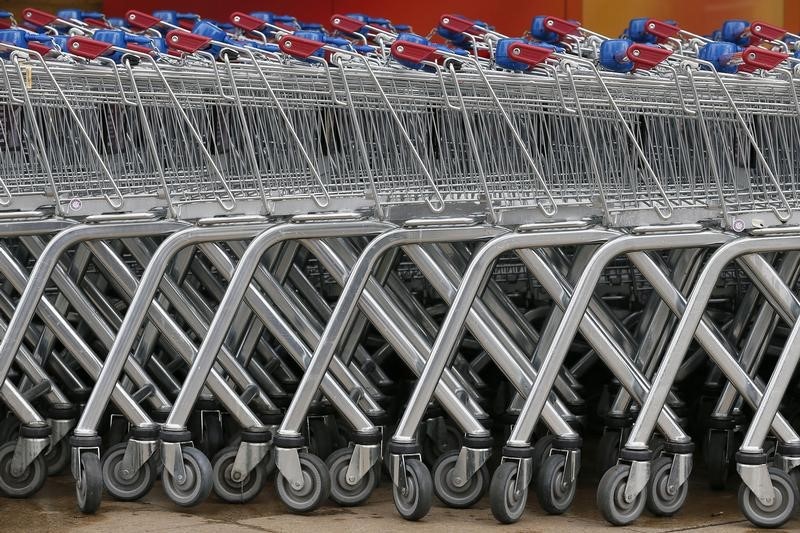SYDNEY, Aug 3 (Reuters) - A private-sector gauge of Australian inflation showed price pressures remained well contained in July and were no bar to another cut in interest rates if needed.
The TD Securities-Melbourne Institute's monthly measure of consumer prices rose 0.2 percent in July from June, when it edged up 0.1 percent. The annual pace ticked up to 1.6 percent, still comfortably under the Reserve Bank of Australia's (RBA) target band of 2 to 3 percent.
The central bank holds a policy meeting on Tuesday and is considered almost certain to keep rates steady after having cut to an all-time low of 2.0 percent in May.
"Cautious optimism from the RBA Governor in recent weeks speaks to us that the RBA Board is likely to leave the cash rate at 2 percent for quite some time," said Annette Beacher, chief Asia-Pacific macro strategist at TD Securities.
RBA chief Glenn Stevens recently noted that business confidence had been on the rise and the labour market had proved firmer than was expected just a few months earlier.
He has also cautioned that cutting rates yet further could backfire by stoking excessive borrowing, particularly in the housing market where investment demand was driving prices higher in Sydney and Melbourne.
Monday's TD-MI survey suggested inflation would be no hurdle to a move. The trimmed mean of the CPI edged up 0.1 percent in the month while the annual rate of 1.5 percent was down from 2.4 percent at the start of this year.
Inflation excluding fuel, fruit and vegetables did pick up by 0.3 percent but the annual pace remained restrained at 1.8 percent.
Non-tradables inflation, covering the prices of goods and services not determined by international competition, held steady at 2.0 percent, while tradable inflation picked up to 1.1 percent on the back of a falling Australian dollar.
For July alone, there were notable price rises for property rates and charges, other foods and non-alcoholic beverages. These were offset by an unusual rebate on some water and sewerage charges, and falls in alcohol and tobacco and petrol prices.
